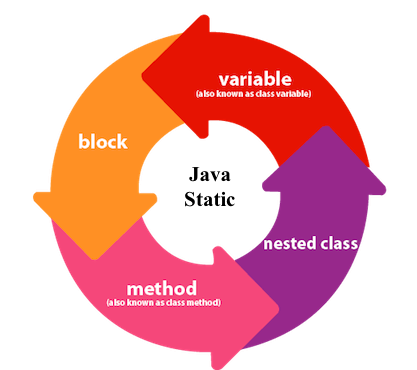Purpose of Static Methods and Variables

Static methods and variables in Java serve several important purposes:
-
Accessing Non-Instance Data:
- Static methods and variables can be accessed without creating an instance of the class. This allows them to operate on class-level data rather than instance-specific data.
-
Utility Methods:
- Static methods are often used to define utility functions that are not specific to any instance of the class. For example, the
Math class in Java contains many static methods for common mathematical operations.
-
Singleton Pattern:
- Static variables can be used to implement the Singleton design pattern, where a class has only one instance throughout the application. The static variable holds the single instance of the class, and a static method provides a way to access it.
-
Constants:
- Static variables are commonly used to define constants that are shared across all instances of a class. These constants are declared as
final static, indicating that their value cannot be changed and they belong to the class, not to any specific instance.
-
Factory Methods:
- Static methods can act as factory methods, providing a way to create instances of a class without directly invoking the constructor. This allows for flexibility in object creation and can help encapsulate the creation logic.
-
Improving Code Readability:
- Static methods and variables can improve code readability by clearly indicating that they are not dependent on instance state. This can make the code easier to understand and maintain.
-
Performance Optimization:
- In some cases, using static methods and variables can improve performance by reducing the overhead associated with object creation and instance method invocation. Static methods are invoked directly on the class, without the need to create an object instance.
However, it's important to use static methods and variables judiciously, as they can also lead to issues such as tight coupling and reduced flexibility in testing. Overuse of static methods can make code harder to understand and maintain, so it's essential to consider the design implications when deciding whether to use static elements in a class.
Thank you,
